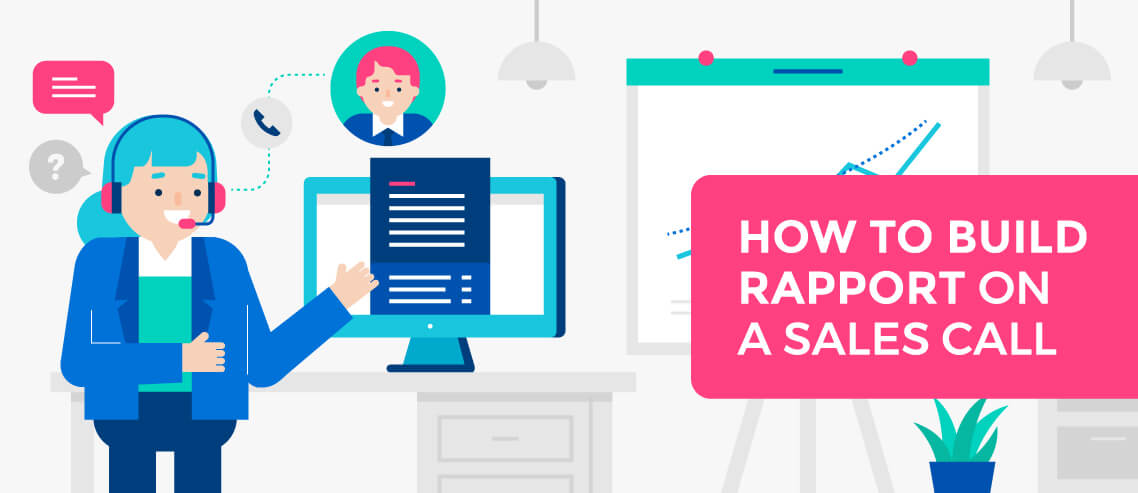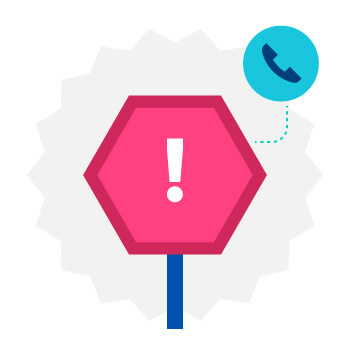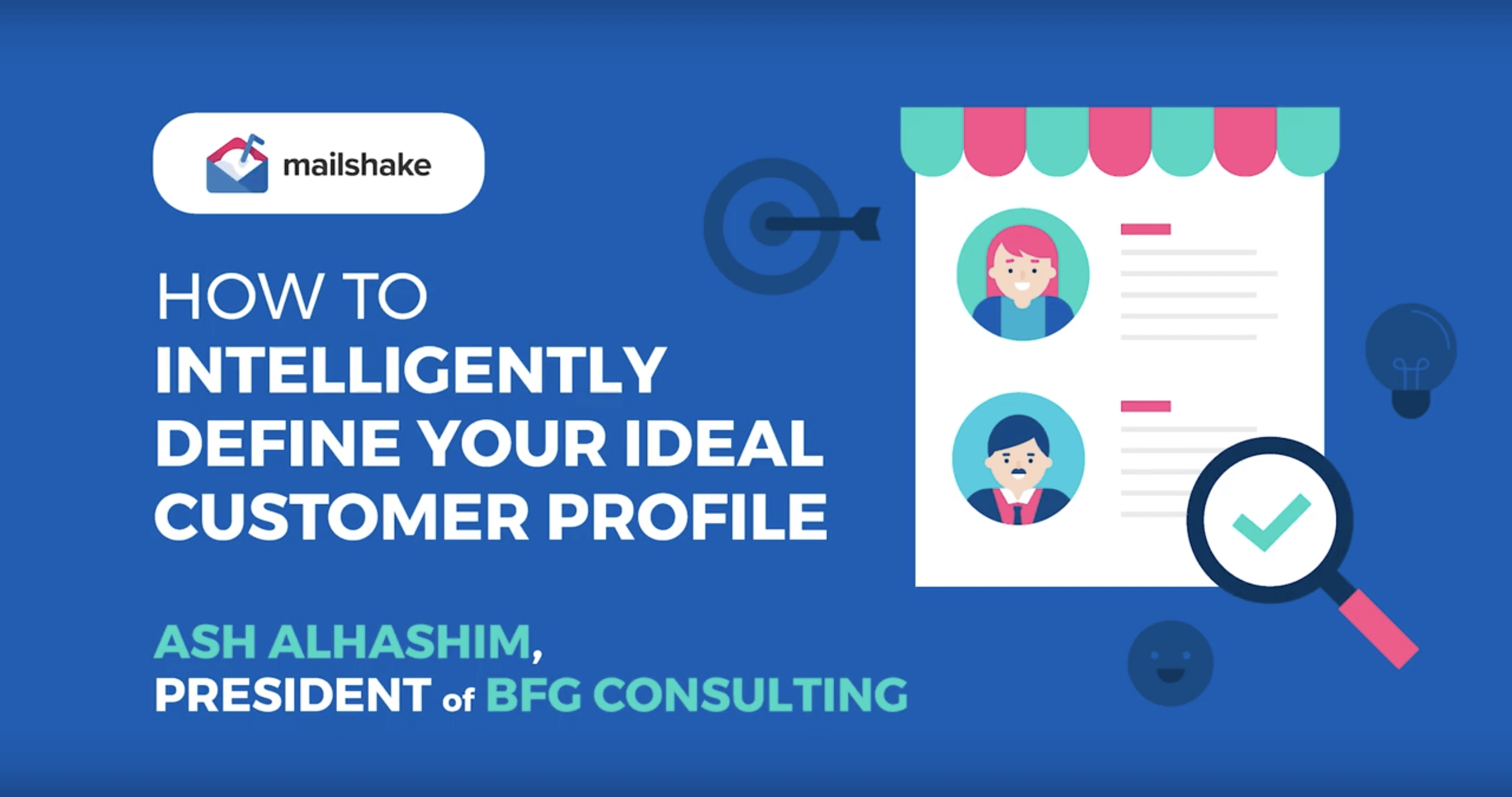How to Build Rapport in Sales

Contents
Selling sounds so easy. Work out who your product appeals to. Find someone who matches that profile. Call them to explain the benefits. If they’re interested, you’ve got a deal. If not, rinse and repeat.
In reality, it’s anything but.
Think about how long it actually takes you to reach a prospect. How often do you get through to a buyer after a single phone call? Or even half-a-dozen calls? Probably not very often.
In fact, on average it takes salespeople 18 dials to connect with a buyer.
Given the effort required to get through to a buyer in the first place, it’s vital that you make every call count, laying the groundwork for a positive ongoing relationship. That’s why everything you say on your initial call should be geared toward building rapport with your prospect.
The Benefits of Building Rapport with Prospects
In the high-pressure world of sales, it may seem like taking the time to foster a relationship is a luxury you can’t afford, and that every contact with a prospect should be seen as an opportunity to close the deal as quickly as possible.
But that’s just not how sales works anymore. Buyers need to know that they can trust sales reps – that their needs are being understood, and that the rep they’re speaking to has the knowledge and expertise to recommend a solution to their problems.
It’s all but impossible to achieve this without first taking the time to build rapport with your prospect. That’s because investing in rappor:
- Lets prospects know you’re listening to their needs
- Allows you to ask difficult questions that could otherwise scare a prospect away
- Puts the prospect at ease, enabling the conversation to flow more smoothly
4 Things to Avoid When Trying to Establish Rapport

There’s more than one way to build rapport with a prospect, and the techniques you use should feel natural to you. But there are some things you should avoid like the plague:
- Assuming intimacy/being overly familiar: In sales as in life, it takes time to form a genuine bond with someone new. Taking an overly familiar tone or assuming a degree of intimacy that just doesn’t exist yet won’t expedite the process – it’ll push people away.
- Skipping the small talk: “So how about this weather?” “Going anywhere nice on your holidays?” Small talk gets a bad rep, and it’s hard to deny that questions like these will do little to endear you to your prospects. But good small talk is vital for forming bonds. Absolutely take the time to ask about where they went to school, or the mutual connections you share.
- Talking at your prospect: You’re trying to strike up a natural conversation, not reel off a well-rehearsed monologue. If you’re doing all the talking, you’re not building rapport.
- Trying too hard: Don’t force things. Building rapport doesn’t mean you have to instantly become best friends; if you try to connect too quickly, you’ll come across as desperate.
So what do you do instead? Keep the following six tips in mind:
6 Tips for Building Rapport In Sales with Your Prospects
1. Do Your Research
You’re at a party. A friend introduces you to someone new. If your friend is a good host, they’ll probably tell each of you a couple things about the other. For example, “This is Jack, we used to work together at Company X and he’s a big baseball fan. Jack, this is Matteo, we went to school together in Chicago and he loves motorbikes.”
Ultimately, it’s easier to strike up a conversation centered around shared interests and experiences when you know something about the other person.
Sales is no different. You should always look into your prospect’s background before reaching out to them for the first time.
Presumably, you already know where they work and what their job is – that’s the whole reason they’re a prospect in the first place. But you need to dig deeper if you’re going to build rapport based around common interests. As a minimum, you should attempt to find out:
- Their hometown
- Where they went to school
- What they studied
- How long they’ve been in their job
- Whether you have any mutual connections
2. Give (Genuine) Compliments
Compliments can be one of the greatest tools to help you build rapport – but only when they’re genuine and meaningful.
Let’s say you’ve researched your prospect on LinkedIn. It probably won’t advance your cause if you congratulate them on a recent promotion and tell them how much they deserved it – after all, they don’t know who you are, and they’ve almost certainly been inundated with “Congrats!” messages already.
On the other hand, if you see a piece of content that your prospect created and shared, it’s absolutely a good idea to read it, gather a couple of takeaways, and tell them how much you enjoyed it. Explain why you liked it:
- Have you been able to implement any changes to your own methods or processes having read it?
- Have you shared it with your colleagues or other prospects?
- Have you learned something particularly valuable from it?
That’s a proper compliment, and it paves the way for a wider conversation.
3. Take the Personal Approach

Sure, you’re ultimately trying to make a sale. Your prospect knows that. But that doesn’t mean you’re only allowed to talk about work.
Both you and the person at the other end of the line have a life outside of the office. Often, it’s the personal touches – a shared love of a certain TV show, restaurant, activity, or anything else – that can really help you make a connection.
I’m not saying that your first call with a prospect should be 15 minutes of quizzing them about their favorite book or movie. Instead, the personal approach should follow naturally from your initial research.
Here’s an example: you’ve found out they got an MBA at the University of Arizona. One of your closest friends went to UA too and studied at the same program. They told you about a certain professor who really brought the course material to life – does your prospect remember them?
4. Get a ‘Yes’ As Soon As Possible
Buyers are busy. Whether you’re cold calling them or previously made an appointment, it’s unlikely that speaking to you will be their highest priority for the day. That means they’ll naturally want to say “no” as soon as possible and get back to their to-do list.
The most effective way to combat this? Get them to say “yes” as early in the call as possible. Getting that first “yes” removes a huge barrier to your rapport-building efforts and paves the way for more “yes” responses down the line.
Best of all, it doesn’t need to be a difficult “yes.” You don’t have to ask them if they want to learn about your product or are available for a meeting next week. A positive response to even the most basic of questions – “Are you the best person to speak to about your company’s email marketing?” or “Can I email you a couple of free resources that will save you time on your email marketing?” – gives you an opening to strike up a real conversation.
5. Tell a Story
If I told 100 people that the average temperature in the Sydney Opera House Concert Hall is 72.5 degrees, how many of them would remember it a week later? Half? A third? Probably much less.
Now, imagine I told that same group that the reason for this is because a constant temperature of 72.5 degrees helps to keep the musicians’ instruments in tune. That’s a lot more memorable, right?
Why? Because it’s not just a fact, presented without context. It’s part of a story.
Stories capture the imagination; they help us to picture a scenario or challenge in a way that mere numbers never could. As a sales rep, you can use this effect to your advantage to forge closer bonds with prospects.
For instance, let’s say you’re talking about a client success story. Don’t just reel off cold, hard figures – how much their revenue increased by, or how many more leads they generated. Create a compelling narrative. What problems was the client facing? What did they say when you started working together? How did you come up with a solution? What speed bumps did you face along the way?
6. Add Value Early

Buyers need to understand that you know what you’re talking about and are worth listening to. If they start to question this, you’ll never succeed in building rapport.
Overcome these doubts by adding value as early as possible. Make it immediately clear to your prospect that they’ll enjoy real benefits by speaking to you, and always give them a reason to keep listening.
Say you’re speaking to a tech CFO. Prior experience with similar clients has taught you a few of their likely pain points – for instance, maybe their team is spending too much time maintaining spreadsheets and not enough on delivering analysis and insight to the board. But you can recommend a couple free tools that could make a big difference, based on what you’ve seen work in other organizations.
That’s real value. And best of all, because you’re not actively selling something at this point, it’ll help build trust too.
Remember: You’re Speaking to a Real Person
If you only take one thing away from this article, let it be this: never forget that you’re speaking to a real person.
All the rules that apply to “normal” (out-of-work) conversations are true of sales calls as well. The more relaxed and natural you can be, the more likely it is that you’ll build the rapport needed with your prospects to move business decisions forward.





